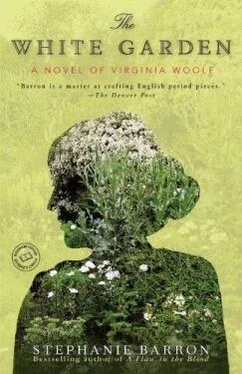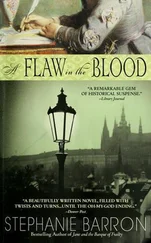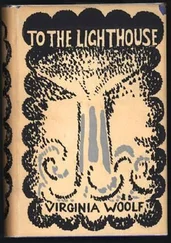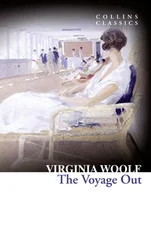“Very well.” Peter was looking at Jo. “We can assume Leonard buried her ashes in solitude, too. Along with a few other things.”
“Where exactly was the body found?” Jo asked.
Margaux rolled her eyes in frustration. “Do you know nothing of academic method? One must at least attempt a certain logical order. Try not to interrupt. Try to focus on the dates.” She swept back her hair impatiently and knotted it with a pencil. “From the second to the eighteenth gives us nearly three weeks to play with, which is far too much to be of any use — but I think we can narrow it down. Vita helps.”
“How?”
“She wrote a letter to Harold describing a visit she made to Leonard Woolf, at Monk’s House, on the seventh of April.”
“That would have been…”
“The Monday following this account.” She tapped the slim bound volume. “It’s clear from the tone of Vita’s letter that Virginia was missing again — no longer at Sissinghurst, and nowhere to be found. Vita had driven down to Rodmell to condole with Leonard. Listen — ”
She scrolled through a text pulled up on her screen. “The house full of his flowers and all Virginia’s things lying about as usual.…Her scribbling-block with her writing on it. The window from which one can see the river. I said Leonard, I do not like you being here alone like this. He turned those piercing blue eyes on me and said it’s the only way.… They have been dragging the river but have given up the search.”
“Christ,” Peter murmured. “Must’ve been awkward, that visit. Vita knowing Leonard’s wife had left him, and exactly why , and Leonard knowing that Vita had failed to keep her safe. The guilt in the room!”
“Yes, well, everybody’s lousy with guilt after a suicide,” Margaux said indifferently.
Jo shifted in her chair. “They gave up dragging the river, but all the same the body was found. What happened on the eighteenth?”
“It was rather creepy. Four teenagers from Lewes were having a picnic in a field. They spied a log in the river and decided to throw stones at it. Only it wasn’t a log. It was Virginia.”
Jo closed her eyes. “How far from Rodmell?”
“No distance at all.” Margaux glanced up from her computer screen. “That’s the creepy part. The meadow where the kids were picnicking was below an old Georgian farmhouse called Asheham — a house the Woolfs had lived in and loved. Virginia rented it for years before she lost the lease in 1919, and they bought Monk’s House instead. They used to walk from Asheham to Rodmell across a bridge, at Southease.”
“So when she left Sissinghurst,” Jo suggested, “Virginia could have gone to either place. Home to Monk’s House — or maybe to Asheham. Would she have felt safe, there? Home, but not exactly home?”
“Who owned the house in ’41?” Peter asked.
“A cement firm,” Margaux said, “which took possession in the early thirties and destroyed the surrounding landscape with their quarries. The value of the property declined as a result and Asheham was eventually abandoned, though I’m not sure exactly when. And of course during the war, so many country places were requisitioned — for troop billets, and training, and so on.”
“Men in black cars,” Peter said distinctly.
The back of Jo’s neck prickled. “And now?”
“Oh, the house is gone. Demolished a good ten years ago. But if we could move on from the bloody house — ”
“What you’re saying is that Virginia left Sissinghurst sometime between the second of April and the seventh, when Vita went to see Leonard,” Peter said.
“Exactly. Five days.”
He lifted his glasses and rubbed his eyes. “Harold Nicolson’s vaguely menacing letter to Maynard Keynes was dated April fourth. That would be — ”
“The Friday before Vita’s Rodmell visit,” Jo supplied. “Harold would have been at Sissinghurst for the weekend, again.”
“He tells Maynard that Virginia’s his guest, and that he has her notebook,” Peter recited. “So she must still have been with the Nicolsons on Friday the fourth.”
“ — But gone by Monday, when Vita saw Leonard Woolf.”
“Which means Virginia left… when? Saturday? Sunday?”
“Saturday,” Margaux said decisively. “Once she knew Harold wrote to Keynes and tipped her hand, she had to get out immediately. She understood how vicious these people were. Harold wouldn’t believe it, of course, and Vita was always so vague — so lost in her own world… but Virginia knew she had reason to fear them. Burgess and his lot. So she ran. The Nicolsons might have hoped for news of her, Saturday and Sunday — but by Monday, Vita’s off to meet with Leonard.”
Jo considered all this. It fit as neatly as a jigsaw puzzle; but there was something wrong. “Why did they assume she was dead?”
“Sorry?” Margaux said, as though Jo were a half-wit who must be humored.
“Why did Vita condole with Leonard, as you put it? Why drag the river? Virginia had run away before. Why not assume she’d gone to London or Timbuktu? Why act as though she was never coming back?”
“Because they knew it was true,” Peter said quietly. “Think about it, Jo: how would Virginia manage to escape from Vita and Harold Nicolson, who were determined to save her? She must have had an accomplice. Someone who drove her to the train. Or all the way back to Sussex, for that matter. A person who would tell the Nicolsons exactly what happened, in the end — ”
“Jock,” Jo said.
“DID I DISTURB YOU, NANA?” JO ASKED.
It was barely six A.M. in the Delaware Valley, but Dottie was an early riser. She suffered from insomnia, a liability of old age, and often sat up in the middle of the night reading. Jo could imagine her: half-glasses poised on the bridge of her nose, faded pink nightgown beneath a sensible bathrobe, hair in pin curls. Her hands ropy with veins where they held her book.
“Sweetie!” Dottie cried. “Are you calling from England?”
“Yes, and I’m using a friend’s phone, so I’ll have to make it quick.”
“Are you having a good time?”
How to answer that question?
“It’s certainly been interesting,” she said faintly. “I have loads to tell you. But I called with a question, Nana. About Jock. Did you know he worked at Sissinghurst when he was young?”
“Sissinghurst? Where you’ve been working? I had no idea. What was he doing there?”
“Gardening. It must have been right before he joined up. Do you have any idea when that was — when he ran away to the army and lied about his age, I mean?”
“Well, it was 1941,” Dottie said doubtfully, “but I couldn’t give you the day and hour. Summer, I think. He used to say he decided to fight Hitler when the Russians did. If I’m remembering right, the Nazis invaded Russia in June. Did you learn anything about his letter? All that talk about the Lady?”
“I’m still working it out. Listen: Have you found anything else since I left home — anything of Grandpa’s, I mean? Something he wrote, maybe? Or… I don’t know. Anything that you can’t explain?”
There was a brief pause.
“No,” Dottie said, with that same doubtful tremor in her voice. “ — Not that any of his writing would be of help. He wasn’t in a mood to tell us much. I loved Jock dearly, Jo, but I wonder how well I actually knew him. He wasn’t himself in those last days. I mean, you wouldn’t have said he was religious, now, would you? Never went to church at all. And if he were getting that way — thinking of his Maker, and so on, and turning to the Lord — why take such an awful step as kill himself? Churchgoers call it a sin. It doesn’t make sense.”
Читать дальше












